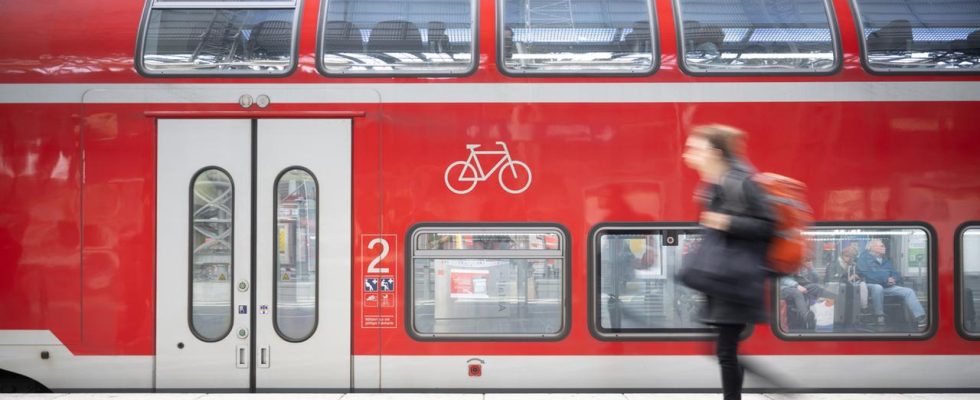In the collective bargaining dispute with the EVG, Deutsche Bahn had recently rejected further negotiations. The union again threatened warning strikes. Now there should be talks again – and before that there are no strikes to be feared.
After the impending warning strike on the railways, the signs are now back to negotiations. The representatives of Deutsche Bahn and the railway and transport union EVG want to meet in a small group in the coming days and explore possible solutions to the collective bargaining conflict. There should be no warning strikes before the planned meeting. Preparations for a possible labor dispute “are continuing,” it said.
According to information from the “Frankfurter Allgemeine Zeitung”, the meeting is to take place next Monday, and strikes are not planned for the entire coming week. The EVG wants to take into account the upcoming Evangelical Church Congress from June 7th to 11th in Nuremberg, the Corpus Christi holiday on June 11th and the end of the Whitsun holidays in some federal states.
The EVG had announced further warning strikes on Wednesday without initially naming a date. She had given the next Monday as the earliest possible date.
Bahn had previously rejected further negotiations
On Thursday, the union said it sent a short-term invitation to talks to the railway’s negotiators. “We certainly see opportunities to find a basis for constructive negotiations. We want to talk about this calmly,” said an EVG statement. The railway accepted the offer of talks in the evening. “We hope from this conversation that the EVG will show possible compromises on their part, which will finally lead to a collective bargaining agreement,” said a spokeswoman.
The railway had initially rejected further negotiations and the submission of a new offer, citing the attitude of the union. The EVG stubbornly insists on its original requirements and is not willing to compromise, said HR director Martin Seiler. Negotiations are “pointless”.
The union spokesman rejected this representation. It was completely clear that the initial demand in the collective bargaining would not ultimately correspond to the result. But more movement is needed in terms of salary, especially for lower income earners.
The sticking point is among other things contract term
The union is negotiating wages and salaries for a total of around 230,000 employees with Deutsche Bahn and 50 other companies in the industry. The focus is on the negotiations with Deutsche Bahn, where around 180,000 of these employees work. The key sticking points are currently the term of the collective agreement and the question of whether wages and salaries will be increased as a percentage or as a fixed amount.
The union demands a fixed amount of at least 650 euros per month or twelve percent for the upper wage brackets. According to their ideas, the term should be one year.
During the negotiations at the end of May, the railways had gradually promised twelve percent for the lower wage groups. The middle groups should get a total of ten percent more and the upper groups eight percent. The first stage of the increase is expected to come later this year. In addition, there would also be a gradual inflation compensation premium totaling 2,850 euros, which could be paid tax- and duty-free from July. The term should be two years. The EVG rejected this employer offer.

